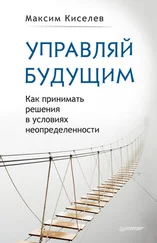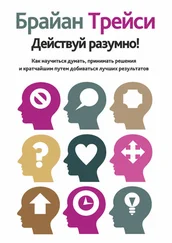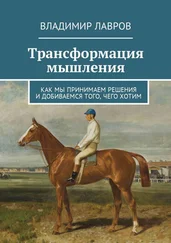Green, Donald, Bradley Palmquist, and Eric Schickler. Partisan Hearts and Minds. New Haven: Yale University Press, 2002.
Greene, Joshua, S. A. Morelli, K. Lowenberg, L. E. Nystrom, and J. D. Cohen. Cognitive Load Selectively Interferes with Utilitarian Moral Judgment. Cognition 107 (2008): 1144—54.
Greene, Joshua, L. E. Nystrom, A. D. Engell, J. M. Darley, and J. D. Cohen. The Neural Bases of Cognitive Conflict and Control in Moral Judgment. Neuron 44 (2004): 389–400.
Greene, Joshua, R. Brian Sommerville, Leigh E. Nystrom, John M. Darley, and Jonathan D. Cohen. An fMRI Investigation of Emotional Engagement in Moral Judgment. Science 293 (2003): 2105—08.
Grossman, Dave. On Combat: The Psychological Cost of Learning to Kill m War and Society. Boston: Back Bay Books, 1996.
Grove, William, David Zald, Boyd Lebow, Beth Snitz, and Chad Nelson. Clinical versus Mechanical Prediction: A Meta-Analysis. Psychological Assessment 12 (2000): 19–30.
Gucciardi, Daniel, and James A. Dimmock. Choking under Pressure in Sensorimotor Skills: Conscious Processing or Depleted Attentional resourcesf Psychology of Sportand Exercise 9 (2008): 45–59.
Haidt, Jonathan. The Happiness Hypothesis. New York: Basic, 2006. The Emotional Dog and Its Rational Tail: A Social Intmtiomst Approach to Moral Judgment. Psychological Review 108 (2001): 814—34.
Hayden, Benjamin, and Michael Platt. Fool Me Once, Shame on Me Fool Me Twice, Blame the ACC. Nature Neuroscience 9 (2006): 857—58. Heilman, Kenneth. Matter of Mind: A Neurologist’s View of Bram-Behavior Relationships. Oxford: Oxford University Press, 2002. Helmreich, Robert. Managing Human Error m Aviation. Scientific American 276 (May 1997): 62–67.
Henrich, Joseph, et al. Foundations of Human Sociality: Economic Experiments and Ethnographic Evidence from Fifteen Small-Scale Societies. Oxford: Oxford University Press, 2005.
Hoffman, Elizabeth, Kevin McCabe, and Vernon Smith. Social Distance and Other-Regarding Behavior in Dictator Games. The American Economic Review 86 (1996): 653—60.
Hogarth, Robin. Educating Intuition. Chicago: University of Chicago Press, 2001.
Holden, Anthony. Big Deal: A Year as a Professional Poker Player. New York: Simon and Schuster, 2007.
Hollerman, Jeffrey, and Wolfram Schultz. Dopamine Neurons Report an Error in the Temporal Prediction of Reward during Learning. Nature Neuroscience 1 (1998):304 —09.
Homer-Dixon, Thomas. The Ingenuity Gap. New York: Vintage, 2002. Inman, J. Jeffrey, Leigh McAlister, and Wayne Hoyer. Promotion Signal: Proxy for a Price Cut? Journal of Consumer Research 17 (1990): 74–81.
Ito,S., et al. Performance Monitoring by the Anterior Cingulate Cortex During Saccade Countermanding. Science 302 (2003): 120— 22.
James, William. The Principles of Psychology. Vol. 2. New York: Dover, 1950.
Jarvik, Jeffrey, et al. Rapid Magnetic Resonance Imaging versus Radiographs for Patients with Low Back Pain. Journal of the American Medical Association 289 (2003): 2810—18.
Jefferson, Thomas. The Writings of Thomas Jefferson. Washington, DC: Lipscomb and Bergh, 1903.
Jensen, Maureen, Michael N. Brant-Zawadzki, Nancy Obuchowski, MichaelT. Modic, Dennis Malkasian, and JeffreyS. Ross. Magnetic Resonance Imaging of the Lumbar Spine in People without Back Pain. New England Journal of Medicine 331 (1994): 69— 73.
Juckel, G., et al. Dysfunction of Ventral Striatal Reward Prediction in Schizophrenia. Neuroimage 29 (2006): 409—16.
Jung-Beeman, Mark, et al. Neural Activity Observed in People Solving Verbal Problems with Insight. Public Library of Science — Biology 2 (2004):500—10.
Kahneman, Daniel, et al., EDS. Judgment under Uncertainty: Heuristics and Biases. Cambridge: Cambridge University Press, 2000.
Kahneman, Daniel, and Amos Tversky. Prospect Theory: An Analysis of Decision under Risk. Econometrica 47 (1979): 263—91.
Kahneman, Daniel, and Amos Tversky, eds. Choices, Values, and Frames. Cambridge: Cambridge University Press, 2002.
Kandel, Eric, et al. Principles of Neural Science. New York: McGraw Hill, 1999.
Keltner, Dacher. The Power Paradox. Greater Good 4 (Winter 2007–2008).
Kennerley, Steven, et al. Optimal Decision-Making and the ACC. Nature Neuroscience 9 (2006): 940—47.
Kermer, D. A., Erin Driver-Linn, Timothy Wilson, and Daniel Gilbert. Loss Aversion Is an Affective Forecasting Error. Psychological Science 17 (2006): 649—53.
Klein, Gary. The Power of Intuition. New York: Doubleday, 2004. Sources of Power. Cambridge: MIT Press, 1999.
Klein, L. R. In the Digital Age: An Empirical Study of Prepurchase Search for Automobiles. Journal of Interactive Marketing 17 (2003): 29–49.
Klein, Tilmann, et al. Genetically Determined Differences in Learning from Errors. Science 318 (2007): 1462—65.
Knutson, Brian, Scott Rick, G. Elliott Wimmer, Drazen Prelec, AND George Loewenstein. Neural Predictors of Purchases. Neuron 53(2007): 147—56.
Koenigs, М., et al. Damage to the Prefrontal Cortex Increases Utilitarian Moral Judgments. Nature 446 (2007): 908— 11.
Kounios, John, J. L. Frymiare, E. M. Bowden, J. I. Fleck,К. Subramaniam,Т. B. Parrish, and Mark Jung-Beeman. The Prepared Mmd: Neural Activity Prior to Problem Presentation Predicts Solution by Sudden Insight. Psychological Science17 (2006): 882—90. Lehrer, Jonah. The Psychology of Back Pam. Best Life, February 2008. Levenson, Robert, L. L. Carstensen, J. M. Gottman. The Influence of Age and Gender on Affect, Physiology, and Their Interrelations: A Study of Long-Term Marriages. Journal of Personality and Social Psychology67 (1994): 56–68.
Lo, Andrew, and Dmitry Repin. The Psychophysiology of Real-Time Financial Risk Processing. Journal of Cognitive Neuroscience 14 (2002): 323— 39-
Logothetis, N., AND Josef Pfeuffer. On the Nature of the BOLD fMRI Contrast Mechanism. Magnetic Resonance Imaging 22 (2004): 1517—31.
Lohrenz, Terry, Kevin McCabe, Colin Camerer, andP. Read Montague. Neural Signature of Fictwe Learning Signals m a Sequential Investment Task. Proceedings of the National Academy of Sciences 104 (2007):9493—98.
Читать дальше












